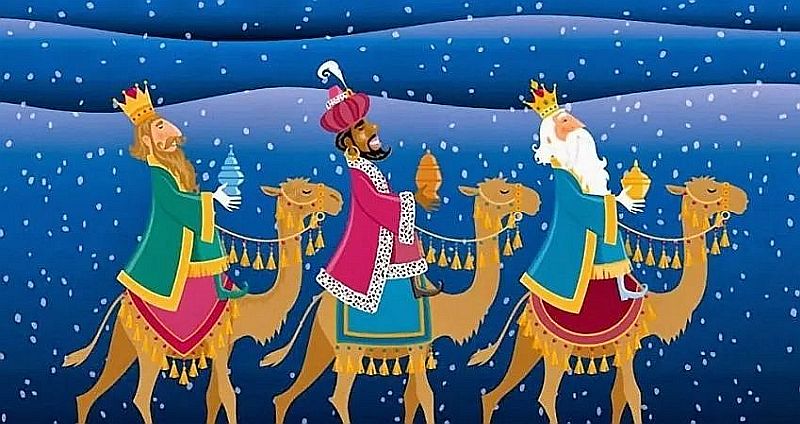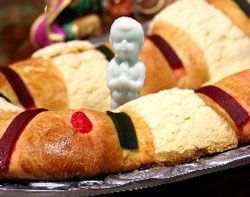
Puerto Vallarta, Mexico – January 6th is a special day in Mexico. Known as El Día de Reyes or ‘Three Kings Day,’ this holiday marks the culmination of the twelve days of Christmas, and is the traditional gift giving day in most Latin cultures.
El Dìa de Los Reyes commemorates the time when, according to legend, the Reyes Mago (Three Wise Men), followed the star of Bethlehem to the manger where the Christ child was born, bearing gifts of gold, frankincense, and myrrh for the baby Jesus.
In Mexico, children receive gifts on this day, brought by the three kings, Los Reyes Magos, Melchor, Gaspar, and Baltazar. Some children receive gifts from both Santa Claus and the Kings, but Santa is seen as an imported custom, and the traditional day for Mexican children to receive gifts is January 6th.

In addition to the gift-giving aspect of the day there is also a culinary treat that is specific to the holiday. Known as ‘Rosca de Reyes,’ or King’s Cake, this holiday dessert offers much in the way of symbolism. Shaped in the round to signify a king’s crown, this sweet bread holds a special surprise. Baked inside is a small plastic figurine representing the baby Jesus.
The Baby is hidden because it symbolizes the need to find a secure place where Jesus could be born, a place where King Herod would not find Him. Each person cuts their own slice of the Rosca. The knife symbolizes the danger the Baby Jesus was in.
One by one the guests carefully inspect their slice, hoping they didn’t get the figurine. Whoever finds this token is obligated to host a party on Dia de la Candelaria, or Candlemas Day, which occurs on February 2nd, 40 days after Jesus’s birth.
On this day, throughout Mexico people take down their nativity scene, dress up the figure of baby Jesus and take him to the church to be blessed. They then get together at the token-finder’s house, where tamales and atole (a hot, sweet drink thickened with corn flour) is served with love and happiness.
This celebration is the last of Mexico’s Christmas festivities. The holiday is also known by the name of “The Epiphany” which dates back to the 4th century. A grand feast would be held on this day to honor the occasion of Jesus’ baptism and to pay homage to the three wise men. The Spaniards brought the tradition of celebrating the Epiphany and sharing the Rosca to Mexico.






